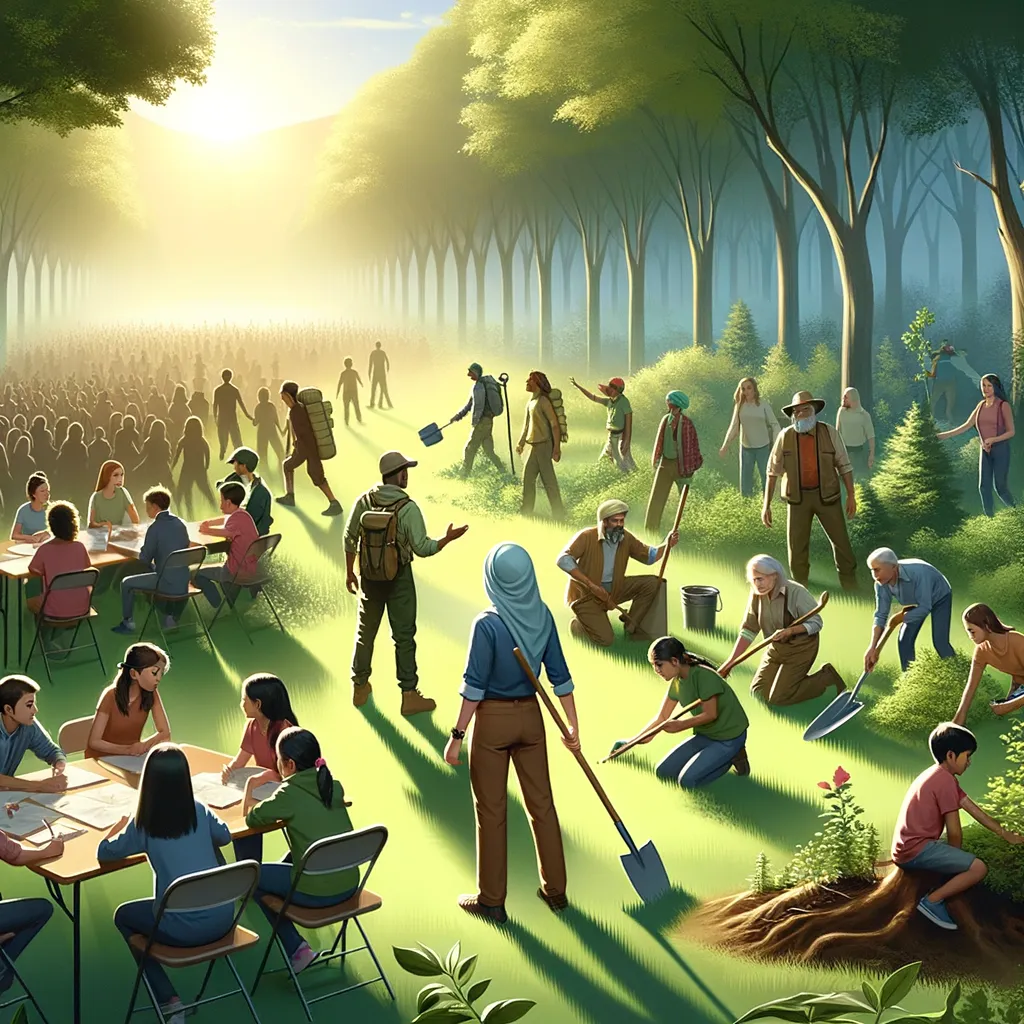Unlocking Social Change Through Outdoor Activities: A Guide for Parents
Welcome to our comprehensive guide aimed at helping parents use outdoor activities as a tool for inspiring social change. In today’s fast-paced, technology-driven world, it’s more important than ever to cultivate a sense of community, empathy, and environmental stewardship in our children. Outdoor activities offer a unique opportunity to achieve these goals, reinforcing values that contribute to social change and personal growth. For more insights and resources, visit Outdoors and Outdoors Info.
Why Outdoor Activities Matter
Engaging in outdoor activities is not just a way to keep children physically active; it also opens the door to invaluable life lessons. Whether it’s a local park visit, a camping trip, or a hiking adventure, each experience is a stepping stone towards understanding the interconnectivity of our ecosystem, the importance of community involvement, and the role each individual plays in shaping a sustainable world.
Enhancing Social Skills through Nature
Outdoor adventures provide a natural setting for children to develop essential social skills. Team sports, cooperative games, and group hiking outings are perfect avenues for teaching the values of teamwork, communication, and mutual respect. These experiences allow children to navigate challenges, celebrate successes collectively, and build a foundation for strong social interactions in their future.
Fostering a Connection with Nature
One of the most profound benefits of outdoor activities is the deep, meaningful connection with nature they foster. This connection is crucial for developing environmental stewardship among the younger generation. By encouraging an appreciation for the natural world, parents can instill in their children the importance of conservation and sustainable living practices.
Outdoor Activities as a Platform for Advocacy
Participating in outdoor activities can also serve as a powerful platform for advocating for environmental issues and social change. Activities such as community clean-up days, wildlife conservation projects, and participating in outdoor advocacy groups allow children to see firsthand the impact of collective action. These experiences not only contribute to a greater cause but also empower children with the knowledge that they can make a difference.
Practical Tips for Parents
Getting started with integrating outdoor activities into your family’s routine may seem daunting at first, but it’s simpler than it appears. Start with short, local outings to familiarize your children with the great outdoors. Encourage exploration, and be sure to discuss the experiences afterwards, focusing on what was learned and how it connects to the broader themes of social responsibility and environmental care. As interest and comfort levels grow, progressively introduce more challenging activities and involve your family in planning and decision-making processes to further enhance engagement and learning.

5 Essential Insights for Parents: Preparing for Outdoor Activities as a Tool for Social Change
Engaging in outdoor activities goes beyond the realm of simple leisure. For families aiming to instill values of empathy, community, and environmental stewardship, the great outdoors presents a vast arena for educational and transformative experiences. This guide delves into five essential insights parents should arm themselves with to maximize the impact of outdoor adventures on their children’s growth and the broader goal of social change.
1. Start with Reflection and Education
Before stepping out the door, begin with a conversation. Discuss with your children the why behind your outdoor activities. Educate them on the significance these actions have not just on personal well-being but on societal health and environmental conservation. Resources such as environmental documentaries, books, and reputable websites can enrich this preparatory step and set a thoughtful tone for the activities ahead.
2. Embrace Diversity in Activities
Variety is not just the spice of life but a powerful tool for growth and learning. Don’t limit family outings to walks in the park—diversify. Incorporate activities that touch on different aspects of social change and environmental conservation. From bird watching and star gazing to volunteering for local clean-ups and joining conservation efforts, each activity offers unique lessons and experiences. This diversity exposes children to a broader perspective of what it means to be active, empathetic participants in their communities.
3. Create Collaborative Experiences
Collaboration amplifies the impact of any action, including those aimed at social change. Engage other families, community members, and organizations in your outdoor endeavors. Planning group hikes, communal gardening projects, or participatory environmental research activities fosters a sense of unity and shared purpose. It teaches children the value of collective effort and the power of community in enacting change.
4. Incorporate Reflection and Dialogue
After each outdoor activity, facilitate a reflection session with your children. Discuss what was learned, observed, and felt. Encourage them to articulate their thoughts on how the activity connects to larger societal and environmental themes. This practice not only reinforces learning but also cultivates critical thinking and empathy, empowering children to see their role in the world more clearly.
5. Champion the Cause of Responsibility and Action
Finally, lead by example. Show your children what it means to take responsibility for our environment and society through your actions. Whether it’s practicing Leave No Trace principles during a hike, actively participating in community decision-making, or advocating for sustainable policies, your actions serve as the most powerful teacher. Highlighting the importance of individual and collective action in outdoor settings reinforces to children their potential to effect change.
By incorporating these five insights into your planning and execution of outdoor activities, you embark on a meaningful journey with your family—one that extends beyond the immediate joy and health benefits of being outdoors. You foster a generation that values empathy, understands the importance of community and environmental stewardship, and is equipped to act towards social change. Engaging in thoughtful, well-planned outdoor activities with a focus on social change is not just an investment in your children’s future but in the future of our world. Through these shared experiences, you’ll create lasting memories while instilling values that will shape conscientious, caring individuals ready to make their mark for the better.
Disclaimer
The articles available via our website provide general information only and we strongly urge readers to exercise caution and conduct their own thorough research and fact-checking. The information presented should not be taken as absolute truth, and, to the maximum extent permitted by law, we will not be held liable for any inaccuracies or errors in the content. It is essential for individuals to independently verify and validate the information before making any decisions or taking any actions based on the articles.




